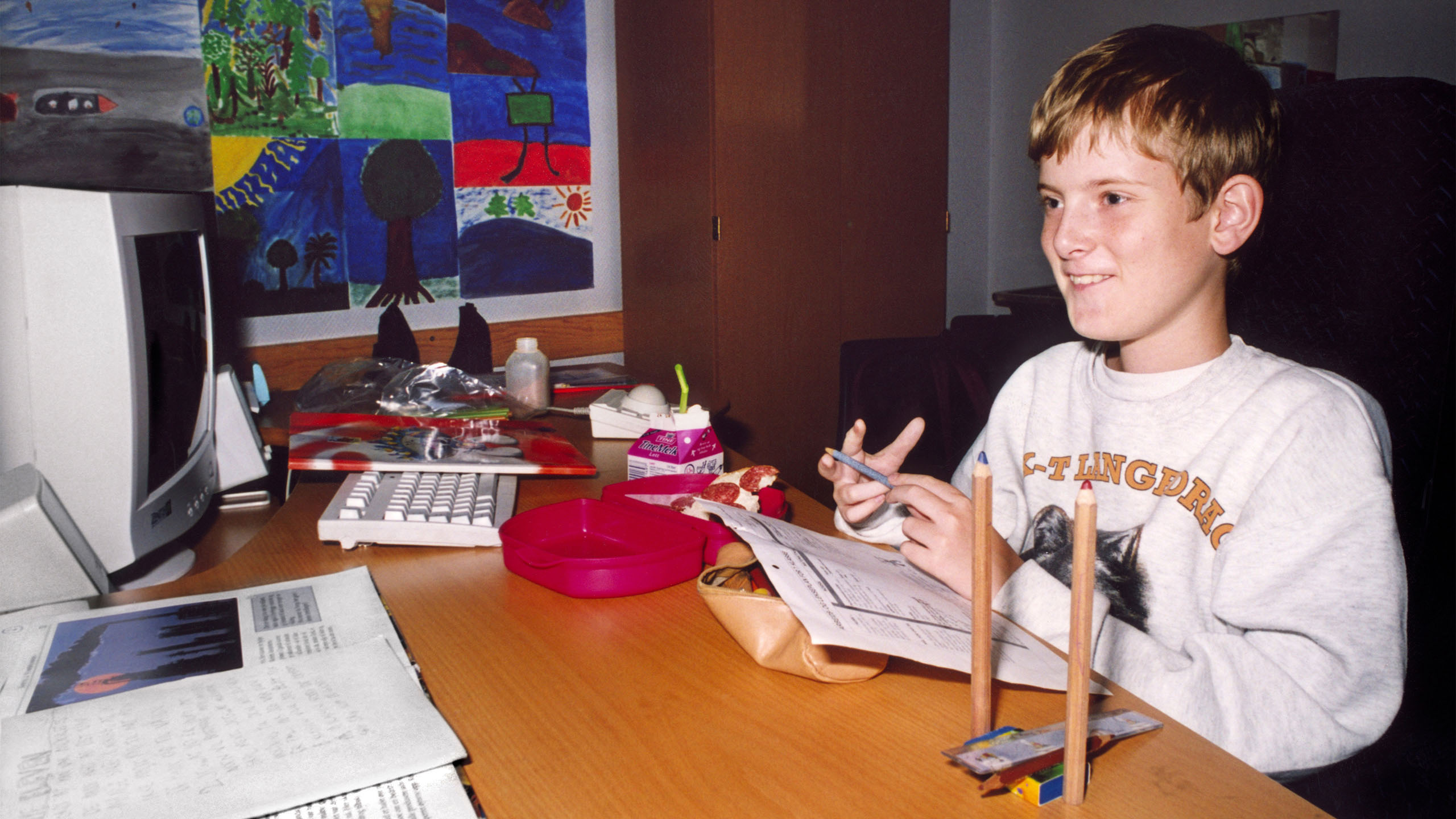Ibelin
(Norway, 104 min.)
Dir. Benjamin Ree
Programme: World Cinema Documentary Competition (World Premiere)
The festival description for Ibelin spells out what looks to be one of those predictable festival films that mine misery for public consumption. The notes suggest a documentary showcasing the struggles of a medically compromised person as his health deteriorates. We are told of Mats Steen, a gamer who used the name that gives the film its title within the game World of Warcraft, his avatar experiencing within a virtual realm the life he wasn’t able to have in reality. At his death at age of 25 in 2014, his parents uncovered an entire community they were unaware of, and we see how young Mats lived a far fuller live than his closest family members knew.
And yet, even knowing this structure, and being prepared for the unfolding of such a storyline, we’re treated to something truly special from Benjamin Ree and his team. For not only are we granted access to Mats’ words, feelings, and experiences, but we quite literally enter the world he called his own for thousands of hours, experiencing in ways both engaging and heartbreaking without ever devolving into a pity party fuelled by maudlin, manipulative revelling in the suffering of a stranger we’re meant to immediately care about.
Norwegian filmmaker Ree brings his own remarkable story to the films he makes. The former Reuters journalist and BBC freelancer brings many of the same skills required for such stories to his feature films. His previous work, The Painter and the Thief, is a remarkable, textured look at a complicated subject that is told with deep knowledge of its topic, a clear directorial eye for detail, and a broad and nuanced take on an extremely complicated story. The same can be said of Ibelin, where the more overt aspects of the storyline are addressed mere minutes into the running time, whereby the rest of the film sets out to help audiences understand the various impulses and behaviours at play.
It’s here that our own journey as viewer mirrors Mats’ own way of being. Just as he entered the world of the Warcraft game, so too are we able to take a journey through his writings and through recreated versions of his actions within the virtual environment. While obviously a more passive process than the acts of game players within a massive multiplayer platform, there’s something very much akin to the process involved in creating that world. The more time one spends within it, the more one derives one’s own abilities to apprehend Ibelin’s orbit through the deeper levels we explore within the game.
Ree uses a technique that, once again, could easily slide into the saccharine or silly, as Mats’ parents received a transcript from the “guild” or online gaming community of which Ibelin was a part, which recorded tens of thousands of pages of in-game interactions. Ree takes this posthumous documentation of a life spent making friends and enemies, developing crushes, and, above all, striving to enjoy the life one wished for while the ravages of a medical condition betrayed Mats’ ability to do so in reality.
Using digital models derived from the game, we’re treated to a slightly heightened version of the third-person characters. Painted-on textures for the characters belie any notion of pure photorealism, yet provide nonetheless a charming and effective mode of existing within this virtual realm. Everything from the buckles on clothing to facial hair is painted on the surface of the human shaped figure, a constant visual reminder that despite what’s overtly superficial is driven by someone at their own keyboard.
The story of Ibelin is not simply one of escapism, but very much of community. It reveals how a life that’s locked within the ones and zeroes of a server farm still has real human implications. I thought of that feeling I had when I saw Tron as a child, the first inkling of what it would be like to live in a totally different realm within the systems. In that film, the goal for the protagonist is, in an Oz-ian sense, to confront the baddie and find a way home. Yet as we see with Mats’ own journey, he found a home within an environment where he could go for a thirty minute run every day, chasing the feeling that was restricted outside the confines of the monitor.
We meet other members of his guild, those who were directly affected by the life Mats led in-game. We hear from Mats’ parents about their own mixed feelings, unresolved anxieties and even guilt. The recreations and reading of Mats’ words by actors bring forward a portrait of a complex individual who never comes across as a saint or martyr to a cause. In fact, so much of the power of the telling comes when Mats is showcased to be a selfish asshole, seeing years spent allowing others to share their stories thinking they were getting close to him without Mats having the courage to reciprocate such trust.
Yet thanks to the fact that Mats did document many of these feelings and contradictions late in his life, including on his personal blog, we’re allowed to see him not simply through the lens of his disability as he wish others to. At the same time, we aren’t being asked to ignore the real implications that the loss of mobility had on who he was as a person. The result is a more effective, three dimensional portrait of a man beyond the crudely drawn version of his virtual character or outside the limited visuals of a person struggling to manage a trackball with a custom-built keyboard rig at his computer.
The generic idea of looking beyond the surface, with clichéd notions of not judging books by covers, is explicitly addressed here. What sets out as a relatively simple storyline becomes in Ree’s telling a deep rumination upon the identities we construct for ourselves, the existential quandaries about whether our own outer shell reflects our inner desires, and even the way that technology has advanced to a point to allow people to truly get lost in a netherworld only to find profound effects in the world we still characterize as actual.
Formally ambitious, emotionally resonant, and engagingly told, Ibelin is a rare work of non-fiction that draws viewers in. In some ways, the most powerful elements are where we see how unremarkable Mats’ hopes and desires are. On the other hand, we’re granted unique access to the most intimate of encounters and most complicated feelings that he was wanting to share. It’s all these elements that combine to help us understand a ma and, in turn, he helps us understand a little bit more about ourselves, our own relationships with others, how our own digital footprint may or may not reflect the lives we live beyond the systems that contain our words or our virtual actions.
Ibelin is a beautiful, powerful film that goes well beyond the expected, resulting in yet another remarkable documentary from Ree that establishes him even further as one of the great non-fiction filmmakers working today. But beyond the craft, beyond the spectacle, and beyond the emotional highs and lows, this is a profound portrait of a man that’s presented in all its shades, gifting audiences with the ability to get to this young man without focussing simply on one aspect of his life. Ibelin is the story of a man that feels unique and significant, but also so wonderfully, comfortingly universal.














